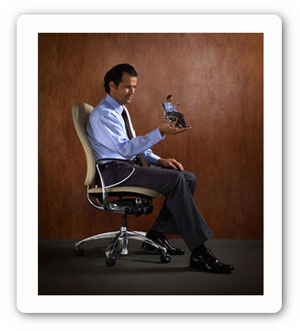This post is about all about doing some serious soul searching and reflecting on your professional self.

If you have spent more than a couple of years in the business of building software you probably know by now that designations mean nothing. Anyone who has read a couple of books on neuroscience or management will tell you that the first rule of self improvement is that you stop trying to improve on your weaknesses and you utilize your core competence to make them stronger and more effective.
Step one to this process of-course is knowing what your core competencies are; and in a world where we excessively turn to business cards to pass our judgments on human beings; finding out your core competencies or what you 'really' do; is hard. Michael Lopp describes this rather articulately in his book - Managing Humans. He explains:
What do you do? Seriously, on your business card there is a title. Say it out loud.
- "Senior Manager of Engineering"
- "Industrial Data Analyst"
- "Human Factors Specialist"
Is that what you actually do? Try this: think about the last four hours of your job and give yourself a title. Mine would be "Senior Meeting Wrangler" or perhaps "Guy Who Listens." Last week it would’ve been "Whiteboard Operator."
When you graduated from college, when you got your first job in your chosen profession, did you think you’d be doing this? No. Whatever you thought you'd be doing when you looked forward to being an "Associate Software Engineer" is not what you ended up doing.
You'd think this title dissonance issue would be a problem. You'd think that the fact that what you thought you'd be doing has nothing to do with what you do would turn into angst, but it turns out, as long as everyone is clear what your secret title is . . . we're cool.
The basic idea; dear reader; like all good ideas; is a rather simple one. Pause every once in a while as you work and question what you are 'actually' doing. Compare what you are 'actually' doing with what you business card reads and you might realize that you have more than one; what Michael calls --- secret titles.
The more you do this the more likely you are to find more of your implicit or secret titles. Club these together and you might be able to figure out a general direction of your core competencies. What is really scary about this process however; is that when you do this; chances are really high that you might actually discover that your core competencies evolve over time and they often have nothing to do with what your 'official' business card reads.
When this happens most folks panic.
After all; when your business card reads 'development lead' and you suddenly have a realization that you are just a 'guy who listens' it is easy to shift to the shit-I-am-going-to-get-fired mode and focus more on your development capabilities rather than your listening capabilities. If that is what you have done in the past; I have two words for what you may have done:
Big mistake.
If you; dear reader; were to wake up one fine morning; and you were to discover that morning that your secret title has developed a strong tangent with your what your business card reads; I have one advice for you:
Sure; spend a little bit of time doing what your business card reads; but instead of trying to force yourself to move back to your 'official' designation; try sticking around with your secret title and see if you can get better on that front. Then as you get better at doing what-ever-it-is that your neurons are naturally meant to be doing give out gentle signals of your secret title to folks around you.
Chances are; that people around you might accept you for what you were naturally meant to be and might actually like you for it.
Remember; the sooner you find out your secret titles and their variance from your official designation; and the sooner everyone around you knows and accepts this variance the happier you will be as a professional.
I wish you good luck
Comments are closed.